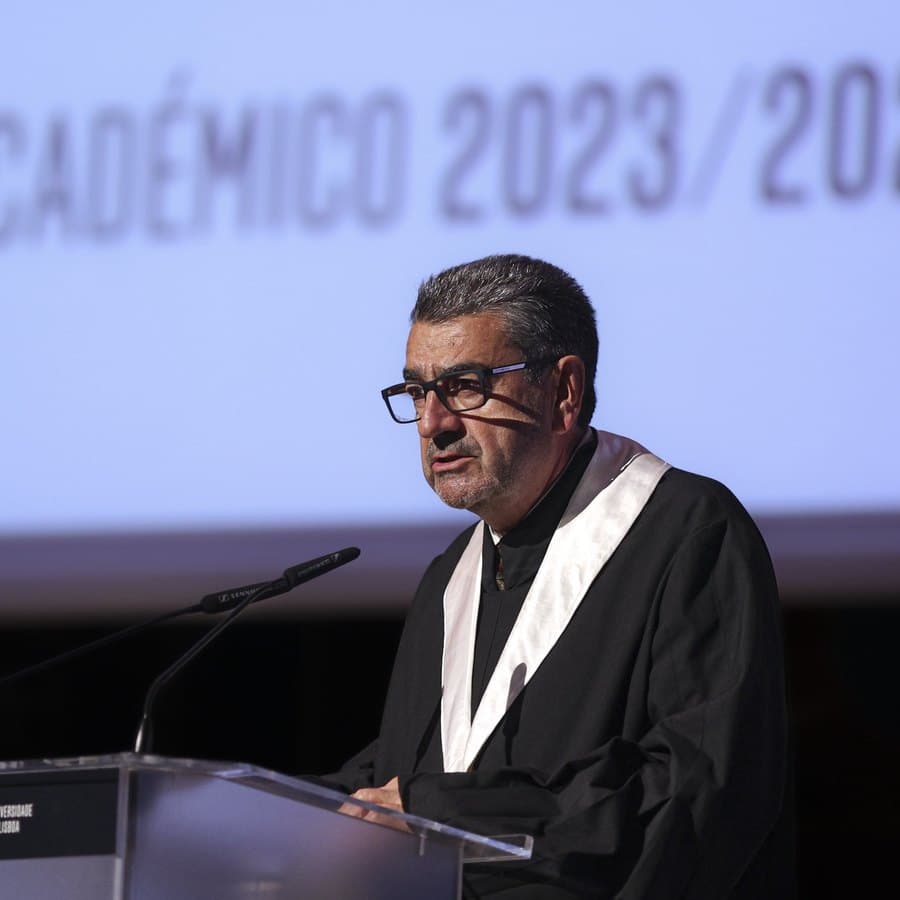The rector of the University of Lisbon today asked the government for more investment in higher education, which implies choices and “a lot of courage”, claiming that “it’s no use” cutting taxes for young people if they don’t have “decent salaries”.
At the opening of the academic year in the Aula Magna of the University of Lisbon – a ceremony presided over by the President of the Republic, Marcelo Rebelo de Sousa – Luís Ferreira argued that it is necessary to ensure that “Higher Education in Portugal is funded at the same level” as its European counterparts.
“Of course, that means making choices. And, let’s face it, that takes a lot of courage. We cannot continue to be the European country in which state investment per student in secondary education exceeds the investment made per student in higher education,” he said.
For Luís Ferreira, the state’s contribution “cannot remain at the threshold of the institutions’ survival”, arguing that “we must ensure that the university’s mission is not degraded and that the investment in human resources made at the end of the 20th century, which enabled higher education to train the most qualified Portuguese generation ever, is not lost in the first half of the 21st century through the emigration” of “capable staff” and “the retirement without succession of an entire generation of professors and researchers”.
“Our future depends critically on the future we give our young people, particularly the most qualified. It’s no use giving young people grants if we don’t give them lives. There’s no point in lowering their taxes if we don’t give them decent salaries,” he said.
In his speech, Luís Ferreira mentioned that last month the allocation to be given by the government to higher education institutions was announced, with a methodology for the next four years.
This methodology, he explained, “is based on a formula that considers the total number of students weighted according to the course/scientific area, with a weight of 80%, and a stabilization factor, corresponding to 20% of the average funding of the last three years”, postponing the inclusion of these components of the “performance of the institutions” for at least four years.
“The reasons given for postponing the incorporation of the performance component into the funding formula are, for us, unacceptable, since this is a fundamental aspect in the evaluation of any institution. (…) It is also incomprehensible that the qualification of the teaching staff is not an important factor, since all or a large part of the funding goes to pay the salaries of teachers and researchers,” he lamented.
The rector of the University of Lisbon said that, “after many years of gradual reduction in real funding for higher education”, he expected more, and pointed out that the money the university receives each year from the state budget is not enough to guarantee the salaries of those who work at the institution, resorting to other sources of funding, such as tuition fees.
The rector also stressed the need for student residences and the importance of the Recovery and Resilience Plan (PRR) “to meet these needs”, pointing out that “the stone’s throw it takes to get the municipal license to launch the respective tenders is truly overwhelming”.
“That’s why we’ve repeatedly suggested that this licensing process should be transferred to the Ministry of Science, Technology and Higher Education. We run a serious risk of not executing part of the PRR funds due to city hall bureaucracy, despite the proclaimed procedural simplification measures, which are slow to arrive,” he warned.
The rector denied that there was any “political attack by the University of Lisbon on the government”, but rather “a warning of demands”, praising the promotion of the revision of the Legal Framework for Higher Education Institutions and the reform of the access regime to higher education.









